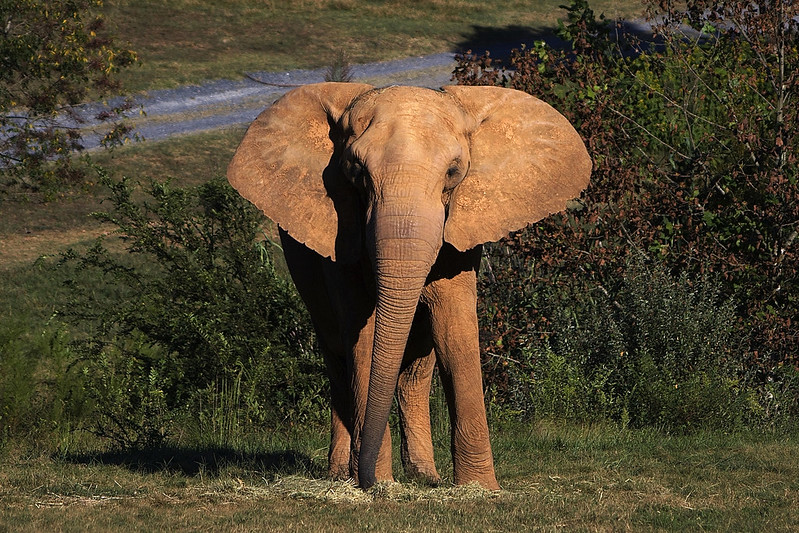Right now, above our heads there are a bunch of satellites zooming around performing all sorts of useful stuff – helping us drive places, forecasting the weather, showing bad movies to people and robots for science.
Well we can add one more task to the world of satellites: they can help us keep an eye on elephants.
African elephants are endangered because of poaching and habitat loss.
And to protect them, we first need to know where they are.
Scientists at universities in the UK and the Netherlands have been testing out a system in which algorithms parse through high-resolution images taken by satellites to identify elephants and their locations.
The researchers used a deep learning network, which they taught to distinguish elephants from other objects in the wild.
In their testing, the system was at least as effective at spotting the animals as human analysis, only it could do in just a few hours what it took humans months to complete.
And using satellites made it easier to get around some of the issues with current tracking techniques, like being able to easily follow elephants across national borders or through areas that aren’t accessible to humans.
There’s actually a lot of research into using satellite photography to monitor wildlife, though even the super high-tech cameras we have on satellites today aren’t able to pinpoint some smaller or well hidden creatures.
Elephants, of course, are the largest land mammals on Earth, so that’s not really an issue here.
Satellites can track elephants to help protect them.
New research on a certain type of electric eel shows the creatures track – and zap – their prey as a group.
Scientists had previously thought eels were loners, so to find out they worked together to get their food was, well, shocking.
Scientists Use Satellite Imagery to Count Elephants (Interesting Engineering)
Shocking Study Finds Electric Eels Hunt Together (Smithsonian)
Help keep our show going as a backer on Patreon!
African elephant photo by Valerie via Flickr/Creative Commons

